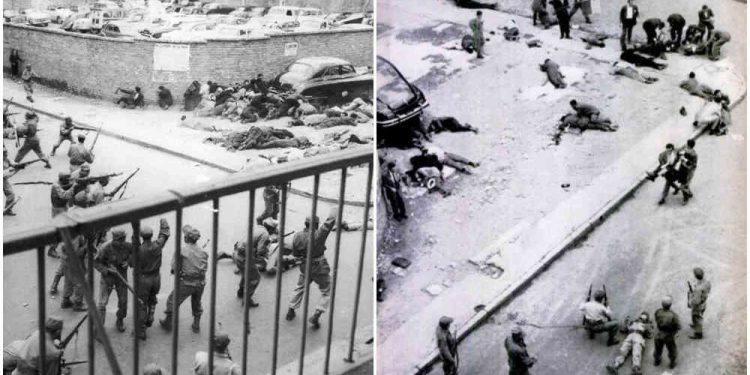COLOMBIA – On June 8 and 9 of each year Colombia commemorates the ‘Day of the Fallen Student’, a date that brings to mind the murdered students and the student struggles they have undertaken throughout history to claim rights, promote reflection and dialogue, and reject the violence and affectations of which they have been victims during the armed conflict in Colombia. As actions to celebrate the date continues to happen, the students clashed with the police in the Bogotá University.
This commemoration is preceded by events such as the one that occurred on June 7, 1929 when Gonzalo Bravo, a student of the National University, was murdered in the midst of protests against the massacre of the Bananeras; also by the murder, 25 years later, of student Uriel Gutiérrez in the framework of the commemoration of the murder of Gonzalo Bravo, on that same date 11 students were killed and 50 others were injured when they mobilized to reject the death of Gutiérrez. Likewise, in 1973 Luis Fernando Barrientos, a student of the University of Antioquia, was murdered, for which the student community declared June 8 and 9 as the ‘Day of the Fallen Student’.
The Truth Commission joins the commemoration of this date, highlighting the listening to multiple voices of students and the reception of multiple reports (as input for the preparation of the Final Report) that account for the dynamics of violence by State agents and entities, the presence of insurgent groups in universities, political action, the times and implications of social mobilization, resistance and peace-building actions.
According to the report ‘Ambos venimos de morir, susurros acechantes del estudiante caído’ from 1929 to 2011 in Colombia 845 students have been murdered. It also relates that between 1962 and 2011 603 students were murdered, 1968 being the only year where no violent death of a student was recorded.
The Truth Commission commemorates this day and praises the different actions led by people who have experienced the violence in Colombia first hand, people who contribute to the construction of memory and the clarification of the truth through testimony, research, the defense of human rights and citizen initiatives. With their work they give body to the thought that is represented in each of the actions that mobilize towards the importance of knowing the truth and avoiding the perpetuation of this violence.
The Truth Commission joins the commemoration of the ‘Day of the Fallen Student’, we recognize the violence caused in the context of the armed conflict against the student community and highlight their actions aimed at generating scenarios for dialogue and reflection for peace.




